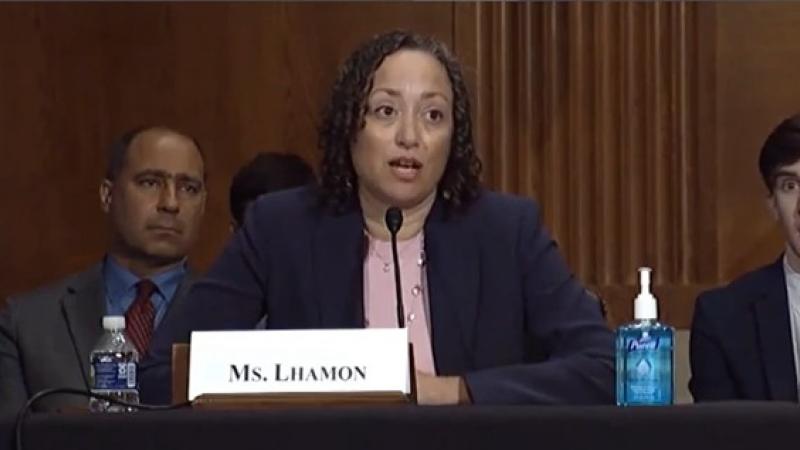American Chernobyl: Whistleblowers file RICO suit against U.S. nuclear and enrichment corporations
The suit alleges criminal conduct, gross negligence, poisoning of nuclear workers, and contamination of Ohio communities with radioactive isotopes, causing cancer clusters, injuries, sickness and death, as well as loss of property values.
This week, former nuclear plant workers-turned-whistleblowers in Ohio filed a federal lawsuit against U.S. Department of Energy nuclear fuel contractors Centrus (the successor to the United States Enrichment Corporation, or "USEC"), Mid-America Conversion Services, and related companies.
The suit alleges criminal conduct, gross negligence, poisoning of nuclear workers, and contamination of Ohio communities in Pike, Scioto and neighboring counties with radioactive isotopes, causing cancer clusters, injuries, sickness and death, as well as loss of property values.
The suit, Walburn, et al, v. Centrus Energy Corp., et al (Southern District of Ohio, Eastern Division), further alleges violations of the Racketeer Influenced and Corrupt Organizations Act (RICO) act, the Price-Anderson Act, and federal environmental laws.
The whistleblowers — former employees of the Portsmouth Gaseous Diffusion Plant in Piketon, Ohio — claim that a "Nuclear Fraud Enterprise has actively deceived workers, the general public, and regulators, suppressing critical information about, among other things, safety violations, characterization of ultra-hazardous materials, environmental releases, workplace exposures, and illegal transportation of highly radioactive materials."
"My life and family have been decimated by the nuclear scourge unleashed into the environment by these companies. These radioactive isotopes go into our bodies creating cancers and genetic defects for generations," said Greenup County, Ky. resident Jeff Walburn, who worked inside the Portsmouth Gaseous Diffusion Plant for 31 years.
"My wife Karen had malignant melanoma, my brother James had esophageal cancer, my brother's son James Anthony has bowel cancer, and my brother-in-law David Fields has kidney cancer — all within a cancer cluster caused by nuclear poison," said Walburn, who has previously testified to Congress about the myriad issues at the plant.
"We are filing this lawsuit to expose the heinous actions and extensive cover-up by companies paid over a billion dollars to protect us," said Lucasville, Ohio resident Charles "Chick" Lawson, who served as the Union Safety Representative and OSHA-certified investigator during his 15 years working inside the Portsmouth plant. "Instead, they take the money, release radioactive isotopes that inflict cancer, death and genetic defects into our lives and families for generations."
"It is incomprehensible that any company, let alone our government, could be so cavalier as to permit the contamination of communities with radioactive isotopes such as plutonium, americium, uranium, and neptunium," said Ohio Attorney Nathan Hunter, who is representing the whistleblowers. "It is unconscionable that they would allow the poisoning of nuclear workers while conspiring to deny them compensation for their resulting injuries. We are grateful for the courts and the justice that they can provide. We have a strong legal team, deep factual knowledge, and are ready for any defense they will spin in attempting to justify these atrocities."
In a 2015 exposé, the Center for Public Integrity and Slate analyzed the whistleblowers' claims against the federal program intended to compensate nuclear workers injured on the job (mostly from radiation exposure). Titled "Angry Ailing Nuclear Workers Fight for Compensation," the exposé revealed that nearly half of all claims in Ohio between 2000 and 2015 were denied and the "denial rate would be even higher if not for exemptions carved out for certain groups of workers."
The U.S. Labor Department — the agency with the authority to approve or deny claims — chose not to provide "lump-sum payments and cover medical care for ex-employees of the U.S. nuclear weapons complex who fell ill after working in environments where production trumped safety," according to the Center for Public Integrity study. Nuclear plant workers like Walburn and Lawson and thousands of others who were once known as civilian "Cold Warriors" while enriching uranium for military use during the Cold War with Russia became demoralized after numerous Labor Department compensation denials.
Walburn and Lawson allege, with substantial evidence, that their radiation exposure records were purged by the plant operators in a massive cover-up — "literally destroyed en masse through a wood-chipper," as they put it in an interview with this journalist.
Without the records of their daily exposures to toxic radiation (known as radiation "doses"), the Center for Public Integrity analysis found, the Labor Department invented a methodology known as "dose reconstruction," which retroactively tried to "estimate toxic exposures at secrecy-cloaked sites where records often were lost, destroyed, falsified — or simply didn’t exist." Nearly two-thirds of dose reconstruction claims were were denied by the Labor Department, according to the analysis.
While this suit focuses on the Portsmouth Gaseous Diffusion Plant in Ohio, there are numerous sites nationwide (including the sister diffusion plant in Paducah, Ky. and the uranium conversion facility in Metropolis, Ill.) facing similar allegations of contamination, corruption and cover-ups. A similar class action lawsuit, McGlone et al v. Centrus et al, was filed by residents living near the Portsmouth plant alleging toxic contamination in the areas surrounding the plant after a Pike county school was shut down in 2019 after finding radioactive chemicals released by the plant.
















